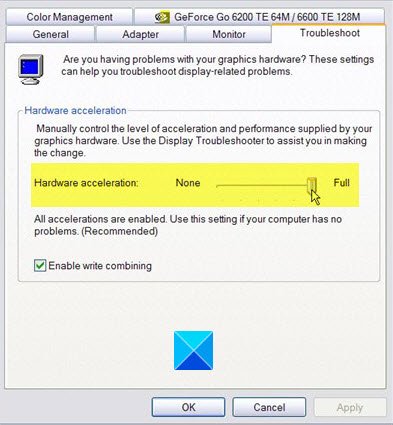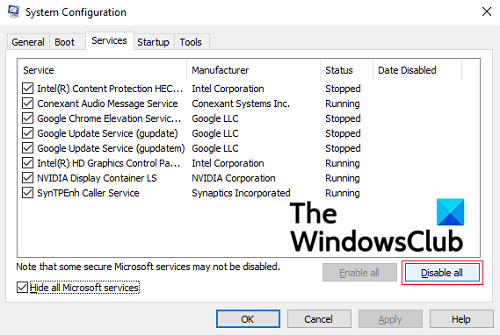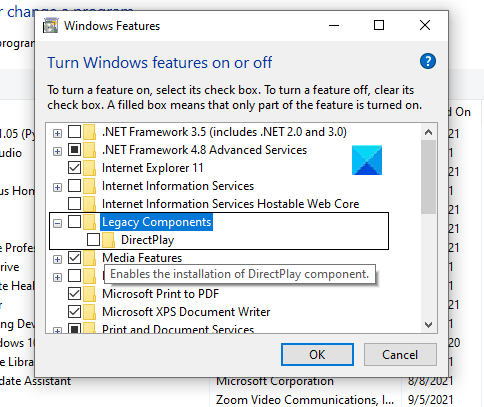It has been reported by some Windows users that they face issues accessing Direct 3D or DirectDraw acceleration on their Windows 11/10 PC. In this article, we will be detailing what might cause this feature to be unavailable to you on occasion and how you can fix this issue. The most common victims of this issue are the users of graphics-intensive Windows applications, gamers, and sort.
What is Direct 3D, DirectDraw or DirectX?
Before we begin, let me briefly familiarize you with a few terms-
- Direct3D is a Windows API that helps render 3-dimensional graphics on applications where performance is pertinent. The utility is able to do that with the help of Hardware Acceleration, provided the graphics card offers it. In short, it offers great help to use apps at a higher level, graphics-wise. You can find out if your PC sports Direct3D by launching the DirectX Diagnostic Tool.
- DirectDraw is deprecated. It is now is a subset of DirectX.
- DirectX contains Direct3D which is the primary graphics handling portion of DirectX. It is associated with DirectX API, and it helps to render 2D graphics in any program on a Windows computer.
Why are Direct3D and DirectDraw acceleration not available on Windows?
- Your PC’s hardware may not conform with the minimum requirements to load the particular 3D graphics
- DirectDraw acceleration has been disabled or not installed on your PC
- Your video adapter is running short of memory
- The latest version of DirectX downloaded on your PC was interrupted or corrupted
Direct3D and DirectDraw acceleration not available on Windows PC
The issue under discussion here is when your PC displays that Direct3D or DirectDraw is not available, and here is how you can remediate.
- Verify that Direct3D and DirectDraw acceleration are enabled
- Enable Hardware Acceleration
- Restart Windows in Clean Boot State
- Enable Legacy DirectPlay from the Control Panel
- Update video driver
- Install the latest DirectX End-User Runtimes Web Installer.
1] Verify that Direct3D and DirectDraw acceleration are enabled
Before you begin maneuvering, it is best to make sure that the setting is enabled or not. Here’s how you can do it:
- Open the Run dialog box and enter ‘dxdiag’ command there
- This will open the DirectX Diagnostic Tool. From the list of tabs on top, select Display
- Here, under DirectX features, you’ll find both Direct3D and DirectDraw acceleration. Check if it says Available next to them
- If it doesn’t, you can proceed to implement the changes talked about below
If you find that neither of these options shows that they’re available. proceed to take the following actions.
2] Enable Hardware Acceleration
Here’s how you can enable Hardware Acceleration on your Windows PC:

- Open the Run dialog box and enter ‘desk.cpl’. This will open the Desktop settings. Scroll down and click on Advanced display settings
- In this separate window, you’ll see an option that says ‘Display adapter properties for display’. Click on it
- In the Graphics properties dialog box, select the Troubleshoot tab, if you do not see this tab, update your drivers and check again
- Here, select Change settings, and from the subsequent dialog box, adjust the Hardware Acceleration slider.
- For the purposes of enabling Direct3D acceleration, you would want to increase it
3] Restart Windows in Clean Boot State

If the DirectDraw utility is being affected by a third-party service, that may cause this issue to arise as well. A solution to that is to restart Windows on your PC only with Microsoft’s services. Here’s how:
- Open the Run dialog box and enter the command ‘msconfig’ to open the Microsoft System Configuration box
- Select the ‘Services’ tab here and check-mark the ‘Hide all Microsoft services’ box on your bottom right
- Now, click on Disable All, then Apply and finally Ok to restart your system only with the Windows Services
5Wait a while for the process to get over and check if you are now able to use DirectPlay services or not.
4] Enable Legacy DirectPlay from the Control Panel

- Open the Control Panel, click to View by Category and select the Programs option
- Further select Programs and features and from the options to your left, select Turn on or off Windows features
- This will open a separate dialog box with a list of options, locate Legacy Components here and expand it to view DirectPlay
- Check-mark the DirectPlay box and apply these changes to enable the installation of DirectPlay on your PC
Doing so should help you remediate the issue with your Direct3D and DirectDraw utilities.
5] Update video driver
Update the graphics driver and see if that helps. Use Windows Optional Updates to achieve this.
6] Install the latest DirectX End-User Runtimes Web Installer
Visit microsoft.com and download and install the latest version of DirectX End-User Runtimes Web Installer
How do I check my DirectX feature level?
A common error faced with DirectX is when a feature upgrade is required by your engine. In such cases, you may have to find out at what level your DirectX feature stands, so that you can look for the relevant feature level upgrade. Here’s how you can do that:
- Open the Run dialog box and execute the ‘dxdiag’ command here
- This will open the DirectX Diagnostic Tool. The default tab, System, is where you have all the System information
- On the bottom of your system properties is the DirectX version. This is your DirectX features level
These are the most commonly applicable solution to the issue when Direct3D and DirectView acceleration isn’t available on your PC. If none of them work, you can also try accessing the utility from a new user account. We hope that this article was of help to you and that you’re now able to make use of the DirectX toolkit features.